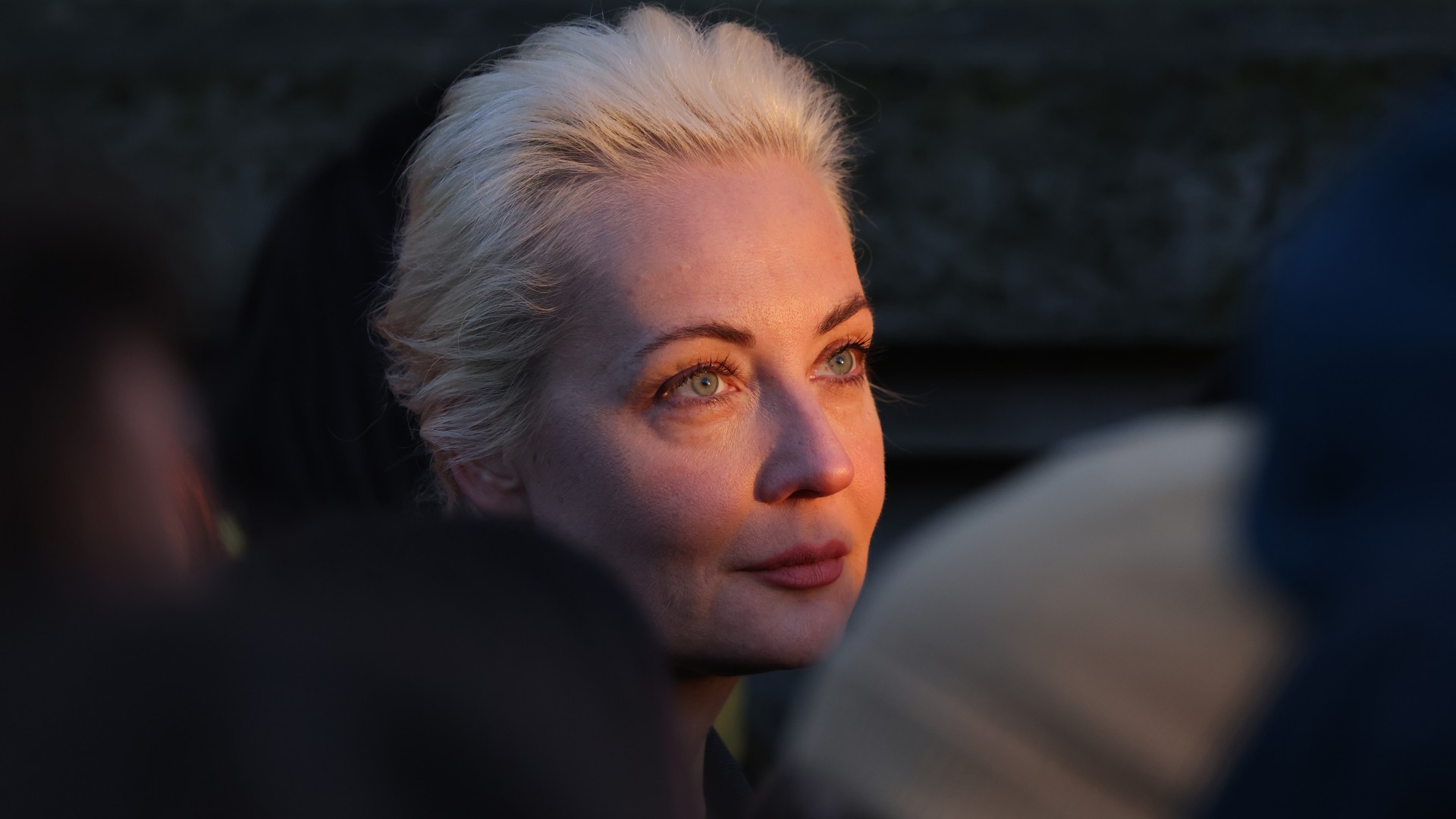Yulia Navalnaya: the new face of Russia's opposition
Widow of Kremlin critic Alexei Navalny vows to return home and run for president 'once Putin is gone'

A free daily email with the biggest news stories of the day – and the best features from TheWeek.com
You are now subscribed
Your newsletter sign-up was successful
Yulia Navalnaya, the widow of Russian opposition leader Alexei Navalny, has declared her intention to run for president of Russia – but only once Vladimir Putin has gone.
Marking the launch of "Patriot", the memoir her husband was writing before his death from a suspected state-authorised poisoning in a Russian penal colony earlier this year, the 48-year-old vowed to "do everything to make [Putin's] regime fall as soon as possible".
For now that has to be from "outside Russia", said the BBC. But the day, Navalnaya believes, will inevitably come "when the Putin era ends and Russia once again opens up".
The Week
Escape your echo chamber. Get the facts behind the news, plus analysis from multiple perspectives.

Sign up for The Week's Free Newsletters
From our morning news briefing to a weekly Good News Newsletter, get the best of The Week delivered directly to your inbox.
From our morning news briefing to a weekly Good News Newsletter, get the best of The Week delivered directly to your inbox.
Political roots
Born in Moscow in 1976 at the height of the Cold War, Yulia Abrosimova's father was a scientist and her mother worked for the Soviet Ministry of Light Industry. A graduate in international economics, she was interning at a Copenhagen business school when she met recent law graduate Navalny while holidaying in Turkey in 1998. They married two years later just as Vladimir Putin was coming to power, and Navalnaya left her banking career to raise the couple's two children while Navalny pursued a political career.
As her husband became an increasingly vocal and high-profile critic of the regime over the next 15 years, she found herself ever more the focus of state surveillance and attention. When out with their daughter, Dasha, born in 2001, and son, Zakhar, born in 2008, she would often be followed by secret agents, trying to turn it into a game for her children.
In post-Soviet politics, Navalny's "magnetism, flair for social media and fluency in the street argot of younger Russians all singled him out", said The Times.
This was in stark contrast to his wife, who for years "sought to avoid the limelight", said Politico. But behind the scenes "those who knew the couple well said Navalnaya not only shared her husband's views, but also helped shape them".
A free daily email with the biggest news stories of the day – and the best features from TheWeek.com
Into the limelight
Any chance of staying out of the public eye ended in 2020, when Navalny was poisoned with the Novichok nerve agent. After receiving treatment in Germany, he decided to return to Russia in 2021, a move many – including himself – knew represented a near-certain death sentence.
And so it proved, when Navalny died in suspicious circumstances in February this year, just weeks before he was due to be released as part of a prisoner exchange with the West.
Since then "no single leader has emerged to unite the country's disparate opposition and there has been significant infighting between different Russian dissident groups abroad", said Reuters.
Navalnaya's current roles include chair of the Anti-Corruption Foundation founded by her husband and US-based Human Rights Federation. But with her vow to continue her husband's crusade against the Putin regime from abroad and one day return to her homeland and run for president, she is undoubtedly now the "public face of Russia's opposition", said The Times.